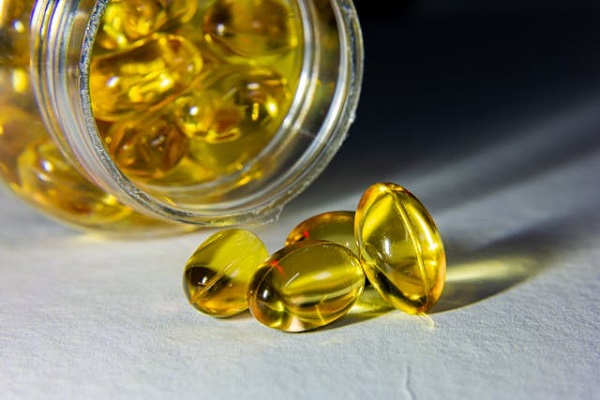Adrienne Austin, a thirty-one-year-old fashion designer, had spent the last decade of her life battling her skin ailments, eczema and seborrhoea. In addition to her chronic itching and rashes, she experienced frequent headaches and sinusitis.
Over the years, she’d been on a number of antibiotics to treat a variety of skin and sinus infections. Adrienne’s skin problem alerted me to the possibility of an underlying deficiency in essential fatty acids. Her chronic sinusitis could be brought on by allergies, to which the body was overreacting. Although she had seen numerous specialists and was constantly prescribed creams for her skin and sprays for her nose, nobody had made a connection between these two conditions. I felt that both of these inflammatory conditions could be cooled down with a healthy dose of omega-3 fatty acids.
Unlike some of my patients, Adrienne did eat fish, but the fish were not especially high in the omega-3s. She loved flounder and fishsticks made from cod. Both, unfortunately, were not choice fish for replacing essential oils, and frying the fishsticks destroyed any other benefits.
Our first step was to change the kind of fish she ate. That was easy; she quickly began to enjoy salmon, tuna, halibut, and bluefish. I also put her on a supplementary 3gm of fish oil a day, in addition to licorice extract. Licorice is a powerful anti-inflammatory herb that boosts adrenal function and is an important part of many Chinese medicinal treatments for skin disorders.
Within three months on my programme, her skin improved to the point where she was comfortable wearing short-sleeved shirts again and was confident enough to resume dating.
Our bodies have an almost effortless ability to absorb omega-3s. Every other fat requires enzymes to activate it. This is not the case with fish oils. However, the secret of omega-3s is that they concentrate and accumulate over time. If your diet has been rich in omega-3s for years, you will have an equally
rich store of these essential fatty oils in your cells. If, however, your diet has been deficient, and your body has been forced to use other fats [and to utilise precious enzymes in an attempt to convert them], you will need time in order to bring yourself back into balance.
Understanding fish oils helps us to peer into the deep inner workings of each cell in our body. I feel there is a certain ancient mystery about omega-3s — they are a link in the vast arc of time, a reminder of the change that occurred aeons ago when we moved from sea to land yet retained this very important need for this essential oil. Omega-3s are, indeed, the firefighters from the ancient oceans — they can work marvels, and the only thing they ask of you is patience and time.
How To Get Your Oils
Nature is an abundant source of vitamins, minerals, and nutrients needed for good health, including essential fatty acids, so unless you are trying to combat an ongoing inflammatory illness, or heart condition, there’s no need to rush to the health food store for these supplements. Three servings
of fish a week should be adequate for most people. Fish high in EFAs are tuna, salmon, halibut, bluefish, red snapper, and mackerel. However, you must also eliminate the unhealthy fats that compete with fish oils. You can’t continue eating fatty, fried foods and meats every day.
Different diseases require different amounts of EFAs. Inflammatory bowel disease can require as much as 6,000mg per day, partly because the inflamed gut cannot absorb oils as well. Arthritis may require 2,000-6,000mg of fish oil a day, perhaps because of the many different sites of inflammation involved in arthritis. Treatments for asthma and lupus generally require 1,000-2,000mg of fish oil a day. Most other conditions, such as PMS, skin conditions, or Raynaud’s, will usually improve with 2,000mg a day; however, higher doses may be necessary with Raynaud’s.
Flaxseed oil can be used as a supplement to fish oil, especially for vegetarians. I recommend 3gm a day in most illnesses. Otherwise, flaxseed oil can be a healthful addition to salads and can be used instead of butter on baked potatoes, squash, or other vegetables. It should not be cooked, as it easily turns rancid, and it should always be refrigerated, with the cap closed tightly.

